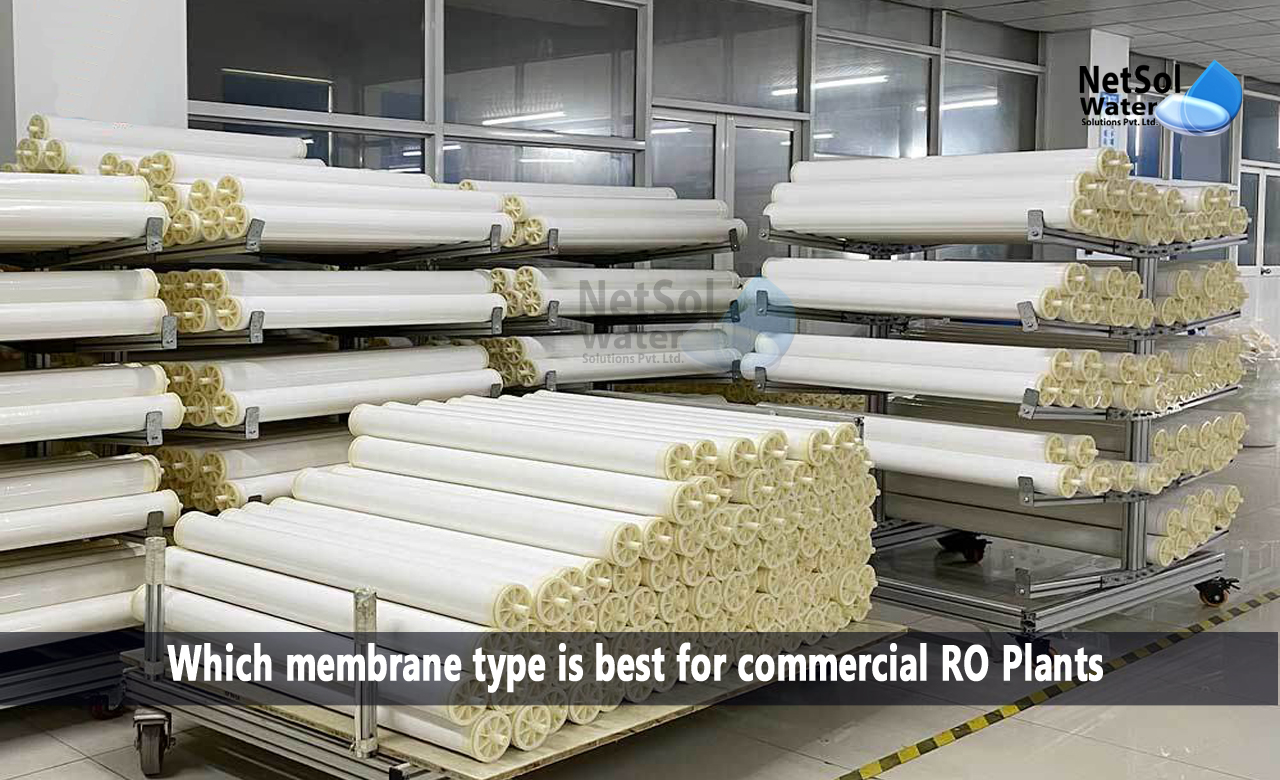In the 1960s, membranes were used for the first time in water treatment processes. Membranes are barriers used in commercial RO Plant that let water pass through, while keeping out undesirable contaminants.
Which membrane type is best for commercial RO Plants?
A membrane process is any technique that filters or removes particles from water, using a membrane barrier. Fluid travels through the membrane as a result of the pressure difference between its two sides.
Although, a wide variety of filtering media, including clay, silt, and sand, are used to clean water, one feature that sets membranes apart is their ability to remove minute components from a liquid, such as salts and ions.
Let’s understand which membrane type is best for commercial RO plants!
Various membranes are required for different operations; in general, they act as a sieve or molecularly separate water from contaminants.
1: Cellulose Based Membranes
These CAs have asymmetric membranes. Membranes for CAs are produced using acetylated cellulose. Compared to other RO membranes now on the market, these membranes provide a number of benefits.
These are quite well mechanically and easily constructed. They are also not severely damaged by chlorine. More than other membranes, like those made of aromatic polyamides, CA membranes can withstand up to 5 ppm of free chlorine.
Advantages of CA Membrane:
1. They don't cause toxicity,
2. They are simple to manufacture,
3. They possess biodegradable qualities,
4. They have little effect on the environment,
5. They might be easily accessible,
6. They are reasonably priced.
2: Thin Film Composite Membranes
Cellulose acetate membranes were the most often used option for commercial RO membranes, until the advent of thin film composite (TFC) RO membranes in 1972. Based on aromatic polyamides, TFC membrane fluxes and rejections fared better than CA.
Besides having a high rejection and flux rate, these membranes provide a number of advantages over CA membranes. For instance, some organics with low molecular weight may be rejected. They are also more stable than CA over a wider pH range and at greater temperatures.
Advantages of Thin Film Composite Membranes:
1. A high rate of unwanted materials rejection (like salts),
2. A high rate of filtering,
3. Strong mechanical resistance,
4. Offers flexibility,
5. Offers temperature consistency.
Application of Commercial RO Plant with the best membrane type
Netsol Water provides the best commercial RO Plants, which consist of cellulose-based membrane or thin Film Composite membrane as per the need of our clients, ensuring that the RO Plant will last longer.
Almost any institution, including schools, universities, malls, offices, hospitals, dental clinics, housing societies, apartment complexes, hostels, restaurants, hotels, caravan parks, camping grounds, and more, can use one of our commercial RO plants.
How can we assist?
By strategically fusing cutting-edge treatment technology with workable solutions, Netsol Water engages with a wide range of worldwide organizations, to address challenging Reverse Osmosis issues.
Thanks to our advanced technology, we are the market leaders in Commercial and Industrial RO Plants. At a reasonable cost, we adapt water treatment systems to customers' unique requirements. We provide fully and partially automated solutions. For any help, inquiry, or product purchase-related questions, call us at +91-9650608473 or send an email to enquiry@netsolwater.com



